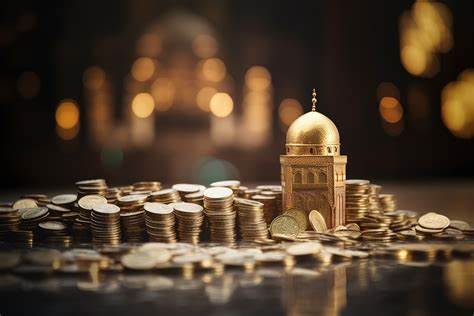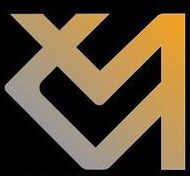
The economy has shifted over the past couple of years, and the increased number of Muslims actively participating in global markets has made values-based investing more in demand. For many investors, though, it’s not all about making a profit it’s about doing their financial business on ethical and faith-based terms. That’s where a values-based trading approach comes into play.
This article explores why religiously compatible investing is important to Muslim investors, what it involves, and how it leads to a more ethical financial course of action.
A Matter of Principle: Why Ethical Standards Matter in Trading for muslim investors
Every investment decision is a decision about what matters, what one is investing in, and what one is not. For some Muslim investors, buying and selling is not merely about making money; it’s about making a difference.
Choosing financial instruments that are consistent with the moral and spiritual outlook of one’s own brings peace of mind and accountability. Whether investing in stocks, commodities, or currencies, Muslim investors will seek to avoid businesses or contracts involving exploitation, fraud, or harm to society. This sense of morality not only affects the portfolio itself but also the investor’s attitude towards wealth and purpose.
Distinctive Features of Values-Based Trading
What sets this form of trading apart from conventional investing is its foundation on moral principles drawn from divine teachings. Investors avoid industries or business models that conflict with their core beliefs. They also engage with contracts and instruments that promote fairness, transparency, and mutual benefit.
Some of the most significant characteristics that define this values-based approach are:
• Avoidance of harmful Industries: Investing is screened out for avoiding involvement in interest-based banking, liquor, casino gambling, firearms, and illegal entertainment.
• Fairness of Contract: Sales need to be free of gharar and maysir, preferring clearness and fairness for the individuals on both sides.
• Backed by Assets Only: Underlying assets or service should underlie the transaction. Speculator instruments or substance less deals are avoided.
• Profit-and-Loss Sharing Models: These models encourage collaboration where risk and reward are shared in equal measure building trust and reducing exploitation.
These features not only align with spiritual values but also encourage discipline and reduce excessive risk-taking, which is typically a source of market volatility and individual loss.
Read More: How to Trade Crypto as a Muslim: HAlal Tips for Beginners
The Risk of Ignoring Ethical Boundaries
Ignoring ethical boundaries in trading can be more expensive than financial losses. Participating in forbidden transactions can lead to inner conflict, eroding the sense of spiritual well-being. Wealth for Muslim investors is not just an asset it is a trust. Investing it in ways that are not consistent with one’s values can lead to regret and emotional tension.
Also, unethical investment may involve social evils such as addiction, war, debt trapping, or environmental degradation. By choosing to engage only in trading that avoids these paths, Muslim investors assist in the construction of a more just and human economy.
Peace of Mind Through Purpose-Driven Investing
Purpose-based investing allows Muslim investors to achieve something greater than a simple capital gain. It brings morality to financial decisions, making them an act of worship and a means of seeking blessings.
Having the assurance that every trade fits with one’s beliefs provides psychological security. Harmony within oneself reduces anxiety, encourages patience in bear markets, and guarantees long-term loyalty to a financial program. It makes the market place a battlefield less stressful and transforms the market into a space of harmonious, thoughtful choice.
The Rise of Faith-Based Financial Institutions
To meet the rising demand for value-based trading, the majority of financial institutions today offer specifically created products and accounts tailored specifically for Muslims. They are:
- Brokerage accounts offering compliant stocks, ETFs, and indices.
- Mutual funds and investment portfolios that are managed under professional managers with a background in finance as well as ethics.
- Trading systems that screen and notify compliant prospects and non-compliant ones.
- Learning material that will help new investors learn how to trade without compromising their values.
These services not only provide tools for ethical investing but also build a community of support for such traders.
Education: A Key to Responsible Trading
Every Muslim investor must understand the basics of ethical trading. It is not enough to just follow the labels; rather, an educated awareness of the contracts, structures, and consequences of every trade is required.
These include:
- Knowing how to read financial statements so that interest-based income can be spotted.
- Knowing what contract terminology says so that ambiguity or uncertainty is found.
- Discovering allowable leverage structures and margin accounts.
- Learning the difference between speculative and productive assets.
With education, investors are able to manage their portfolios and be more self-assured when making investment decisions.
Building Wealth With Integrity
Gaining wealth is encouraged if it is gained through good effort, mutual benefit, and legal means. Muslim investors are encouraged to pursue financial success not just for individual prosperity, but for the benefit of family, society, and for charitable causes.
When investors operate based on an ethical code, they avoid shortcuts that harm others or compromise their values. This discipline is more likely to create longer-term and deeper wealth. Rather than chasing the market, they care about what really matters stability, contribution, and divine reward.
The Future of Values-Based Trading
As the financial world changes, there is growing appreciation for the need for ethical investing not only among Muslims, but among all faiths and ideologies. Environmental, social, and governance (ESG) investing has increased around the world. Investors now seek to know: Where is my money going? What difference is it making?
Muslim investors have long posed these questions previously, long before ESG caught on. Their methodology presents an ageless template for conscious trading focused on justice, public good, and moral distinctiveness.
This promises innovative opportunities for fintech innovation, including:
- Artificial intelligence (AI)-driven ethical screening tools
- Decentralized finance (DeFi) frameworks that adhere to rules of values
- Blockchain-based contracts optimized for transparency and fairness
These technologies have the potential to simplify responsible investing, even in high-speed markets.
Addressing Common Misunderstandings
There are various misconceptions about faith-conscious trading. Some believe that it is restrictive, profitless, or incompatible with modern finance. However, these assumptions have a tendency to be driven by unfamiliarity or ignorance.
The reality is:
• Ethical investment continues to generate good returns only minus compromising values.
• Screening criteria do not rule out all possibilities; they sift them.
• Emerging products and platforms are accessible than ever before.
Muslim investors are not avoiding the market they’re approaching it with intention, self-control, and openness. And more often than not, this leads to smarter, more resilient portfolios.
A Global Movement With Local Relevance
Muslim countries and minority communities worldwide are embracing values-based finance as the core underpinning of their economic development. Throughout Southeast Asia, and across the Middle East, ethical trade is being used throughout national policy, university teaching, and youth programs.
In countries like the UAE, Malaysia, and Saudi Arabia, specialized financial sectors and institutions have been developed to enable this infrastructure. Muslim investors in the West, on their part, are setting up networks, establishing businesses, and collaborating with conventional finance players to enhance access to suitable trading platforms.
This new movement is not for personal gain it’s about shifting financial values and building a more just system for everyone.
How to Get Started With Ethical Trading
If you are a Muslim and would like to align your trading habits with your faith, the following practical steps will help you start:
- Reflect on values: Identify what matters most to you in finances.
- Gain knowledge: Study books, attend courses, and learn from mentors regarding ethical trading principles.
- Choose the right platforms: Search for brokerages that offer screening mechanisms or pre-screened lists of assets.
- Screen your portfolio: Assess current holdings for alignment with your values.
- Become a member of a community: Interact with individuals who share your goals for motivation, guidance, and encouragement.
- Take advice from scholars and experts: In case of doubt, ask the wise ones who understand finance as well as spiritual matters.
Conclusion: Trading With Purpose
To Muslim investors, trading is not about figures on a screen. It’s a chance to live one’s faith, to show integrity, and to leave a legacy of responsibility. A values-based approach provides investors with the assurance to navigate the complex world of finance, knowing that their activities reflect not only intelligence but also faith.
As markets continue to grow and technology advances, the demand for ethical investment will only grow stronger. For Muslims, though, this is not a trend; a temporary movement lacking in fundamental purpose but a timeless path that honors both material success and moral principles.
